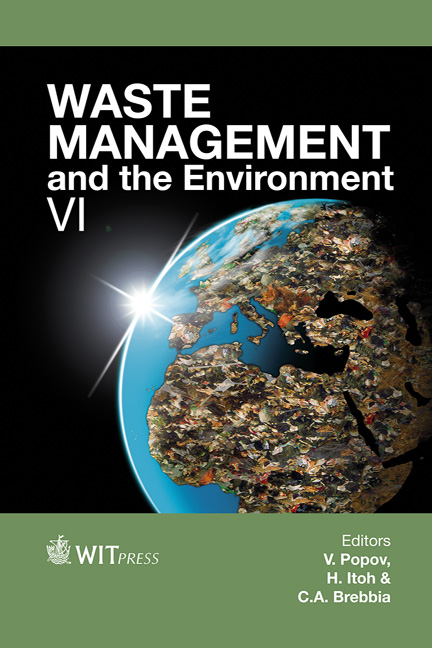Traditional Food Markets, Power Relations And Waste Management: A Qualitative Study
Price
Free (open access)
Transaction
Volume
163
Pages
11
Page Range
37 - 47
Published
2012
Size
727 kb
Paper DOI
10.2495/WM120041
Copyright
WIT Press
Author(s)
T. O. Odeyale, F. K. Omole, B. Sodagar, N. Temple & C. O’Coill
Abstract
The rapid urbanization of Sub-Saharan Africa from a purely agrarian society to a city based one is an interesting phenomenon to study. However, recent studies have shown that there is a lack of understanding of socio-cultural factors and subtle power relations that brought about these transformations, especially in developing society. Thus, the paper reports a qualitative study in which interviews were conducted and sizeable numbers of open ended questionnaires were administered and analysed based on the Actor Network Theory. The study examines the often overlooked factors that have impacted on the growth of the built environment, by taking a closer look at the urban centre in relation to the main food market called Oja Oba located in the centre of the city of Akure, Nigeria. During the course of the field research, respondents observed that the general appearance of the city, urban lifestyle and city liveability is directly impacted by the issue of food waste, waste generation and waste disposal. This paper concludes that in the drive towards a sustainable city in the developing world and effective waste management there is need to understand the layers of underlying socio-cultural issues that prompted these changes which are subtle and sometime quite sudden with intended and unintended consequences. Keywords: anthropology, sustainable development, globalization, social institutions, food market, urbanization.
Keywords
anthropology, sustainable development, globalization, social institutions, food market, urbanization.





